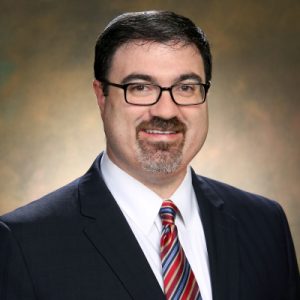The Mishnah’s Tractate Berakhot starts with a discussion about how and when we sing of the Shema, the foundational prayer of our faith. The rabbis ask a question about whether a person can interrupt one’s singing of the shema – a prayer to God – to acknowledge and greet another person. The tradition is clear in its recognition that human connection and relationships are key elements of spiritual living. This is much more than a question about prayer customs and synagogue decorum. It’s a reminder that our places of prayers and spiritual practices, that the human and Divine share the same spaces, physically, emotionally, and spiritually. My mentor, Rabbi David Stern, teaches that this is why honor and sanctify the human moments when we pray and celebrate. Every human moment matters. Regardless of physical distancing, it is the human connections that help us have hope and courage in the face of fear. It is the human connections that help to unite our sense of belonging to community and to something greater ourselves.
June will be the last month in which we share the gifts of Susan Jacobs as our Director of Education. On June 5th, during our Shabbat services, we will share messages and prayers from Temple’s current and previous clergy in celebration of all that Susan has offered our Temple Beth El and Charlotte Jewish community. This is not the celebration that we had initially planned. Yet, the carpool and our prayers are an inspiring reminder of the beauty of our community to celebrate the human moments in the ways that we can, regardless of the challenges that this moment in time creates. It is precisely because Susan matters to each of us, to her family, to our community, and to God.
As many of you know from our earlier announcement, in July we will welcome Rabbi Beth Nichols as our new Director of Lifelong Jewish Learning. We are excited for the arrival of a new partner and leader. Rabbi Nichols joins us from Temple Israel of New Rochelle, New York, which is well known for its innovative approaches to Jewish learning. She played a key role in the creation of Chavaya, a camp-style experiential religious school, and the Kehillah School for Early Learning, a full-time Jewish childcare program. As Rabbi and Director of Congregational Learning at Temple Israel, Rabbi Nichols served as a full member of the clergy team, oversaw Chavaya and the Kehillah School, provided rabbinic leadership for the congregation’s youth programs and partnered with lay leaders and staff to create dynamic learning opportunities for adults.
Rabbi Nichols’ first priority at Temple Beth El will be to bring her tremendous energy, creativity and educational vision to our Religious School that has been built by Susan Jacobs and our faculty. Rabbi Nichols will partner with staff, faculty, and lay leaders to understand the strengths of our program and set a course for new horizons. She will also begin to collaborate with our adult learning programs as part of her responsibility for nurturing Jewish learning throughout our congregation.
The ultimate wisdom of the Mishnah is that the human greeting is actually not an interruption of the Shema at all. It is the fulfillment of the Shema: of the Oneness that is God, and of the Oneness to which God calls us. So as we bid farewell to a gifted teacher, we prepare to welcome gifted teacher, and we know that our greeting will share the sacred act saying Shalom – hello and goodbye and peace.
The Talmud gives us a blessing for these moments of transition. May these ancient words resonate for Susan Jacobs and Rabbi Beth Nichols, and for all of us blessed to be part of this Temple Beth El family: “May the Holy One whose name dwells in this house cause love and kinship, peace and friendship to dwell among you.”




